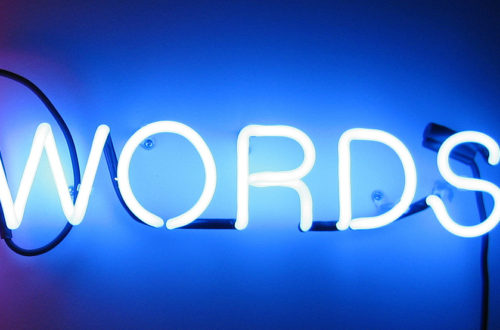A to Z Challenge: T is for Thesaurus

 We’ve all heard of the thesaurus. We used them in school, the old Merriam-Webster ones that could have doubled as giant door stops. Now and again, we would pick one up to try and figure out what a word meant, based on other words that could be used in its place. I know I did.
We’ve all heard of the thesaurus. We used them in school, the old Merriam-Webster ones that could have doubled as giant door stops. Now and again, we would pick one up to try and figure out what a word meant, based on other words that could be used in its place. I know I did.
It wasn’t until writing my first book, that I truly came to appreciate the thesaurus and what it can do for writers. What’s more, you can get all the information online now, so you don’t need to cart around the War and Peace-sized book to look up words from. Thesaurus.com was a life saver for me while writing, Adeline and the Mystic Berries. Sometimes you just need to know other ways to say colorless.
Here’s the thing with using a thesaurus when you are writing your manuscripts: you don’t want your readers knowing you used one. I have seen it in several books now where the author picked the most obscure, difficult to understand word, to replace the one they’d already used before. It is just one more thing that can draw the reader away from your story.

They are left wondering, “What does bantam mean?” because you decided that you needed another word for small but didn’t want to say that the book was a “tiny edition.” Saying a “bantam edition” just sounded cool.
If your goal was to have your reader grabbing their bedside dictionary so they could figure out what that word means, then you’ve succeeded. If you wanted your reader to keep reading and not have the flow of your story stopped, you may have missed the mark a bit.
It sounds silly, I know, but I’m telling you it happens all the time. I have looked words up before and stopped reading, because I didn’t want to miss anything important. What if bantam was a crucial detail to where the book (in the example above) came from? How was I to know it just meant small?
The thesaurus can be both a writing aid and a crutch (see post on Understanding Our Flaws in Writing). Don’t let it become the latter.
On a side note, Thesaurus.com also has a sister site which can be found in the upper tabs on their webpage, called Dictionary.com. This is a wonderful resource as well, giving you the dictionary at your fingertips, and best of all, it weighs nothing! I usually have both up simultaneously whenever I write.
How often do you find yourself using the thesaurus while writing? Have you ever come across a word that made you pause because the writer chose an obscure word over an easier variation?



14 Comments
Nilanjana Bose
I couldn’t get along without my Thesaurus! But I agree that obscure words are annoying, they interrupt the flow of the story in my head. Here from the A-Z and well done on a great take on the T- prompt!
Nilanjana.
Ninja Minion, A-Z 2016
Madly-in-Verse
JHWinter
Thank you so much, Nilanjana! I’m glad you stopped by. Hope to see you here again!
Amanda Fleet
I wouldn’t be without my thesaurus and to my mind, the original Roget’s with its categories cannot be beaten! The newer versions where you just look up the original word and get a few others to choose from are a pale comparison!
I do get annoyed when it’s obvious that someone has used their thesaurus too much (or worse, substituted in a word that actually doesn’t make sense in the context!).
Great post.
Amanda (http://www.amandafleet.co.uk)
JHWinter
So true! Using thesaurus’s to a fault, will show up in your writing every time. Thank you for stopping by, Amanda!
Anna (the drruth2point0)
I LOVE thesaurus and dictionary.com!! Couldn’t live without them! 🙂
JHWinter
Agreed! I’m glad you like them as much as I do!
Liz Brownlee
I use a Chambers Roget’s and it’s my favourite book. I love it. So many synonyms! Very useful, being a poet! ~Liz http://www.lizbrownleepoet.com
JHWinter
I believe you’re the second person that has suggested Roget’s. I’m definitely going to need to check it out!
Patricia Lynne
I have had stories been derailed by words I didn’t know. Very annoying. Sometimes I don’t even bother stopping. I just shrug off the fact that now the sentence is a big confusing and read on.
JHWinter
Exactly. It gets to the point where the writers are talking over their readers, and who wants to be on the other end of that?
Jennifer Shelby
Bantam is also a type of chicken! Now THAT would be confusing. Watch out for the chicken edition everybody.
JHWinter
See, I didn’t know that. It was a word I would have needed to look up, if I came across it in a book I was reading. It isn’t always bad to have to look up words, because that betters our understanding of the language, but you also don’t want to appear as though you’re talking over your readers. A fine line indeed!
Jackie
This is so true. It always takes me out of the story when I read I word I don’t recognize and have to think on the meaning or look it up. I understand needing to use a variety of words to keep your writing from being repetitive, but words that are too obscure are definitely distracting!
JHWinter
They truly are. The thesaurus can be a great help and a hindrance if not used properly. Thank you for your input!